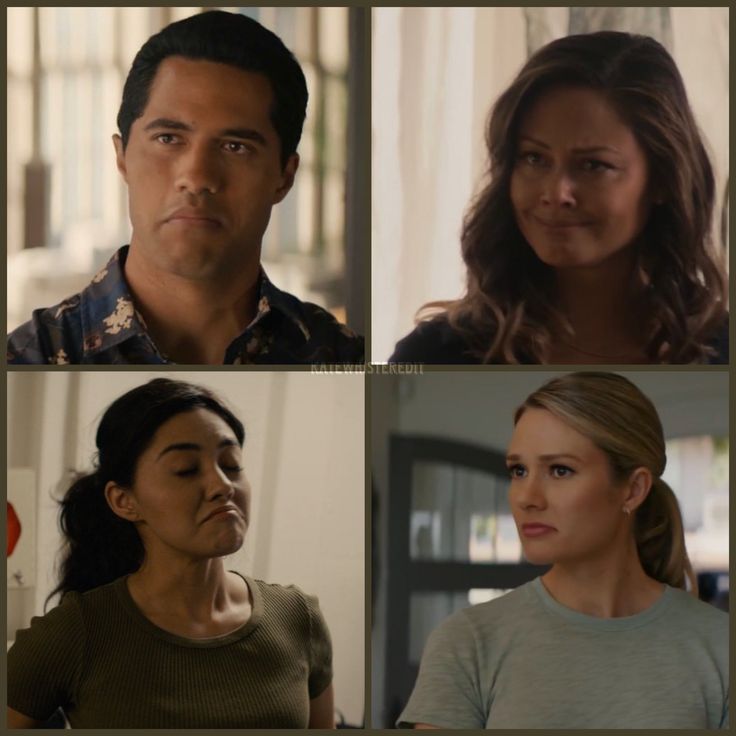
One year after CBS abruptly canceled NCIS: Hawai’i, actor Jason Antoon has offered fans a haunting glimpse into what remains of the Honolulu filming site. In a video posted to his social media, he shows the now overgrown and derelict Hawaii Film Studios location — “empty and full of weeds,” as he put it.
In this article, we’ll dig into what led to the show’s cancellation, explore the fate of the studio, and examine what this scenario says about the future of filming in Hawai’i.
The Rise and Sudden Fall of NCIS: Hawai’i
From Launch to Lament — The Series’ Journey
When NCIS: Hawai’i premiered, it brought fresh energy to the NCIS franchise with a vivid tropical backdrop and a dynamic cast, including Jason Antoon as cyber intelligence specialist Ernie Malik. The show ran for three seasons before CBS announced its abrupt cancellation in April 2024.
Why Did CBS Pull the Plug? Costs, Ratings & Trade-Offs
Despite being among the more successful non-sports programs, NCIS: Hawai’i faced steep production costs tied to shooting in Hawai’i. CBS reportedly weighed the overhead against projected returns and made the tough call. Sometimes, even strong viewership can’t offset logistical and financial burdens.
A Year Later — What’s Left Behind
Jason Antoon’s Video Tour Through an Overgrown Lot
In June 2025, Antoon shared a video clip on X (formerly Twitter) showcasing the Hawaii Film Studios lot. What he found was jarring: vacant lots, weeds overtaking pavement, and no signs of ongoing activity. “Empty and full of weeds,” his post read.
The imagery struck fans and industry watchers alike as a visual metaphor for a project that once hummed with life now lying dormant.
The Studio’s Storied History — More Than Just NCIS
Hawaii Film Studios wasn’t built for one show; it was the hub for productions like Lost, Hawaii Five-0, Magnum P.I., and others. Its shuttering suggests more than just a single cancellation — it’s emblematic of a broader industry shift in Hawai’i.
What This Means for Hawai’i’s Filming Industry
The Power of Tax Incentives & State Policy
Hawai’i has long offered tax credits to offset filming costs and attract productions. But with rising expenses and changing industry dynamics, the state’s filmmaking future hangs in the balance. Governor Josh Green has even considered vetoing a bill that would phase out the credits, arguing that it could stifle future investments.
If tax incentives go away, fewer blockbuster shows may choose Hawai’i as a shooting destination.
Film Production Moving Away — A First in 20 Years
With NCIS: Hawai’i canceled, and another local project (Rescue HI-Surf) shelved too, Hawai’i now has no ongoing TV series production — the first time in two decades this has happened. The loss of this ecosystem could lead to fewer jobs, less local infrastructure use, and a fading film culture in the islands.
The Human Side — Cast, Crew & Community
Antoon’s Emotional Response & Reflections
For Antoon, the project was more than just a role. He described the cancellation as “brutal” and “makes no sense,” while also expressing gratitude for the fun times and deep connection with fans. His act of posting the video feels akin to a farewell tour — documenting what once was.
Fans, Support & Shared Heartache
Fans responded with heartbreak and nostalgia. Comments ranged from “This hurts my heart” to “It was such a good show — what a mistake to cancel it.” The communal mourning speaks to how people invest emotionally in shows and fictional worlds.
Crew and Local Workforce Affected
Beyond cast and audiences, local technicians, extras, and supporting businesses likely feel the impact. When one major series leaves, ripple effects hit hospitality, catering, studio support, and local vendors.
Could NCIS: Hawai’i Ever Return — Or Could a New Project Take Its Place?
Revival Hopes & Obstacles
Fans often dream of revivals or reboots. But with production cost pressures, it’s uncertain whether NCIS: Hawai’i — or anything similar — could resume under the same conditions.
Pivoting to New Models: Streaming & Hybrid Shoots
One pathway might be co-productions or shifting to more budget-friendly shoot models (e.g. partial remote, fewer location builds). Studios might invest in virtual sets or leverage tax incentives more aggressively.
Could Another Show Resurrect Hawai’i Filming?
The infrastructure and scenery are still there — if someone’s willing to invest. A new show with balanced budgeting and incentive backing might be the spark that reignites Hawai’i’s film scene.
Lessons from This Studio’s Silence
Even Popular Shows Aren’t Immune
Success doesn’t guarantee longevity. Even high-performing shows like NCIS: Hawai’i can disappear if the business side doesn’t align.
Location, Infrastructure & Sustainability Matter
Film studios can’t run purely on nostalgia or beauty — they need ongoing, sustainable financial support and logistics to keep functioning between hits.
Transparency & Documentation as Legacy
Antoon’s video is more than social media fodder — it’s documentation of a cultural and industrial moment. It forces us to reflect on the fragility of production ecosystems.

Conclusion
Jason Antoon’s video of the abandoned Hawaii Film Studios lot is more than a celebrity post — it’s a stark visual elegy for a once-thriving TV production hub. One year after NCIS: Hawai’i was canceled, what remains is weeds, silence, and a pressing question: can Hawai’i ever reclaim its place in television again? Between policy challenges, industry economics, and shifting creative models, the path forward is uncertain — but the passion and memory live on in those who once walked those stages.
FAQs
Q1: Why was NCIS: Hawai’i canceled despite its popularity?
Because production in Hawai’i carried high costs, and CBS ultimately decided the financial burden outweighed the benefits — even though the show had strong viewership.
Q2: What did Jason Antoon show in his video?
He revealed the studio lot in Honolulu, overrun with weeds, empty, and without any signs of current filming activity.
Q3: Does Hawai’i still host any TV production?
No — following the cancellation of NCIS: Hawai’i and Rescue HI-Surf, Hawai’i currently has no active TV filming.
Q4: What role do tax incentives play in film production in Hawai’i?
They are crucial subsidies that offset high filming costs. If these incentives are scaled back or removed, fewer productions will see Hawai’i as viable.
Q5: Could NCIS: Hawai’i or a similar show come back?
While fans remain hopeful, revival faces major financial, logistical, and industry hurdles. A return would require new investment models or incentive structures.